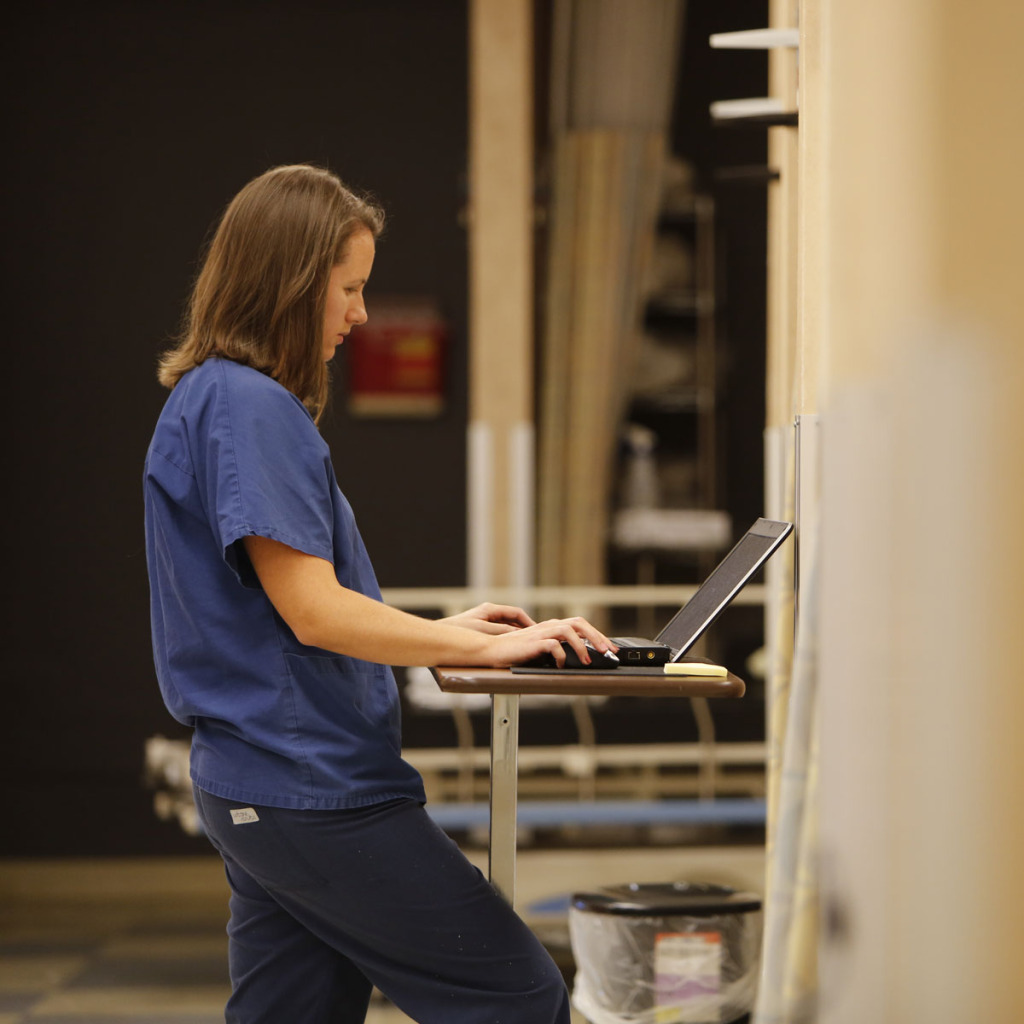Anorectal manometry (ARM) is a minimally invasive diagnostic procedure that assesses the muscle function in the rectum and anal sphincter, and is used to evaluate conditions such as fecal incontinence and severe constipation. It is easily performed in the office setting without sedation. During the procedure, a thin, flexible tube with a balloon at the end is inserted into the rectum; the balloon is then inflated and deflated at different intervals while the patient is asked to squeeze, relax, and push to simulate having a bowel movement. The pressure readings are recorded and analyzed, and provide information regarding contraction strength of the anal sphincter muscles as well as coordination between the rectum and anal sphincter. The information gathered will help your doctor formulate a personalized treatment plan, often in conjunction with pelvic floor physical therapy.
FibroScan is a non-invasive diagnostic test of the liver that measures the amount of scarring (fibrosis) and fat accumulation (steatosis). A specialized probe emits painless elastic waves into the liver, and measures the speed at which these waves travel through the liver tissue. This measurement is related to the liver’s stiffness, which can indicate the presence of fibrosis and provide information about the extent of liver injury or damage caused by various liver disorders. This becomes valuable information for assessing liver health, monitoring liver conditions over time, and guiding management.
Hemorrhoid banding, also known as rubber band ligation, is a minimally invasive procedure used to treat internal hemorrhoids. It is quick (less than 1 minute), highly effective, and can easily be performed in the office setting without sedation, with a low risk of complications. During this procedure, the doctor will insert a band ligator device into the rectum and deploy a tiny elastic band around the hemorrhoid tissue, which cuts off its blood supply and effectively causes the hemorrhoid to shrink and fall off after a few days, leaving only a small scar behind. Up to three banding sessions may be required to adequately treat all of the hemorrhoids.
Learn more.
